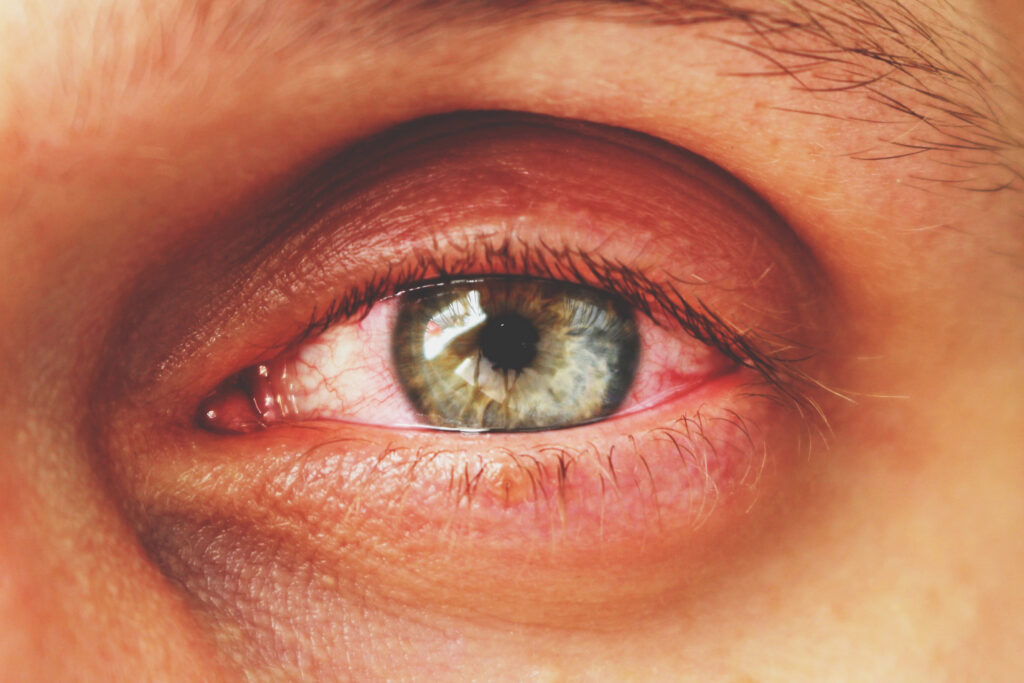Waking Up with Watery, Burning Eyes? Here’s What Could Be Causing It

Waking up with watery, burning eyes can be an uncomfortable and frustrating experience. For some, it’s an occasional inconvenience, while for others, it’s a recurring issue that interferes with starting the day comfortably. There are a variety of factors that can contribute to this morning eye irritation—from dry eyes and allergens in your environment to overnight eye strain or inadequate moisture in the air. In this article, we’ll explore common causes of waking up with watery, burning eyes, provide tips for prevention and relief, and help you identify when it’s best to seek guidance from an eye doctor. If you’re dealing with persistent morning eye discomfort, the experts at Eye Pros are here to help you find effective solutions to start each day with clearer, healthier eyes. Common Causes of Watery, Burning Eyes in the Morning Waking up with watery, burning eyes can stem from several underlying causes, many of which are manageable with simple lifestyle changes or treatments. Common causes of morning eye discomfort: Dry Eye Syndrome Dry eyes are a major contributor to morning irritation. During sleep, reduced blinking and tear production can cause the eyes to become dry, leading to a burning sensation when you wake up. In response, the eyes may overproduce tears, which can result in watery, burning eyes as they try to compensate for overnight dryness. Allergies Allergens like dust mites, pet dander, and mold often accumulate in bedding and pillows. When you sleep, prolonged exposure to these allergens can irritate the eyes, causing itching, watering, and burning. Seasonal allergies can also play a role, especially if your bedroom windows are open, allowing pollen and outdoor allergens to enter. Environmental Factors Sleeping with a fan, heater, or air conditioning can dry out the air, leading to eye discomfort. A lack of moisture in the air overnight can worsen dryness, especially in individuals already prone to dry eyes. Low humidity levels, particularly in winter months, can cause additional irritation as the eyes struggle to retain moisture. Eye Strain and Digital Exposure Prolonged screen time before bed can cause eye strain, which may lead to morning irritation. Staring at screens reduces blinking, which prevents the eyes from staying adequately lubricated. Eye strain from screens, especially before bed, can create tension in the eye muscles, which may result in burning or discomfort upon waking. Contact Lenses Wearing contact lenses late into the evening or, worse, sleeping in them can cause a buildup of bacteria and debris, leading to irritation and inflammation. Even if contacts are removed before bed, some people may still experience lingering dryness or discomfort due to the lenses’ impact on natural tear production. If you’re frequently experiencing morning eye discomfort, understanding these causes is the first step toward finding relief. For a personalized assessment and recommendations, consult an eye doctor at Eye Pros who can help identify the source of your symptoms and provide targeted treatment. Symptoms and Related Conditions Morning eye irritation can manifest in several ways, and recognizing specific symptoms may help you identify underlying issues or related conditions. Symptoms often accompanying morning watery, burning eyes: Watery and Burning Sensation A combination of excessive tearing and a burning sensation can indicate a dryness imbalance, where the eyes try to compensate by overproducing tears. This is commonly linked to conditions like dry eye syndrome or eye strain. Discharge or Crust Formation Waking up with crusty discharge around the eyelids or lashes is often associated with blepharitis, a condition characterized by inflamed eyelid edges. This discharge can exacerbate burning and watery sensations, especially upon first opening your eyes in the morning. Itchiness or Redness Persistent itchiness and redness often indicate an allergic response or irritation from environmental factors like dust or pet dander. These symptoms are commonly seen in people with allergies or mild eye infections. Pain or Blurred Vision If you experience pain, sensitivity to light, or temporary blurring when you wake up, it could suggest a more serious condition, such as an eye infection or a tear film imbalance. Pain and vision changes should be evaluated by an eye doctor as soon as possible. Each of these symptoms can point to different eye conditions that may require specific treatment. If you’re experiencing any of these issues frequently or they worsen over time, an eye doctor at Eye Pros can help diagnose the cause and recommend appropriate relief options. Prevention and Relief Tips Preventing morning eye irritation can often be achieved through simple adjustments to your environment and nighttime routine. Tips to reduce morning eye discomfort: Use Humidifier Adding a humidifier to your bedroom can help maintain moisture levels in the air, preventing dryness that contributes to burning, watery eyes. This is particularly helpful during winter when indoor heating can dry out the air. Change Pillowcases and Bedding Regularly Washing bedding frequently can help remove dust mites, pet dander, and other allergens that may irritate your eyes while you sleep. Opt for hypoallergenic bedding if allergies are a consistent problem. Limit Screen Time Before Bed Reducing digital screen exposure at least an hour before bed can minimize eye strain. Consider using “night mode” settings on your devices, as these reduce blue light, which can contribute to eye fatigue. Apply Lubricating Eye Drops Using lubricating eye drops before bed can help keep your eyes moisturized throughout the night. If dry eye is a common issue, your eye doctor may recommend a specific type of artificial tears to provide longer-lasting relief. Consider Allergy-Proof Bedding If allergies are causing eye discomfort, using allergy-proof pillow covers and mattress protectors can reduce exposure to dust mites and other allergens, helping to alleviate morning eye symptoms. Adjust Sleeping Position and Environment Sleeping with a fan blowing directly at your face or in a room with low humidity can increase eye dryness. Adjust your fan position, or try keeping windows closed to prevent exposure to outdoor allergens. By incorporating these preventative measures into your routine, you may be able to reduce or even eliminate morning eye discomfort. For tailored
